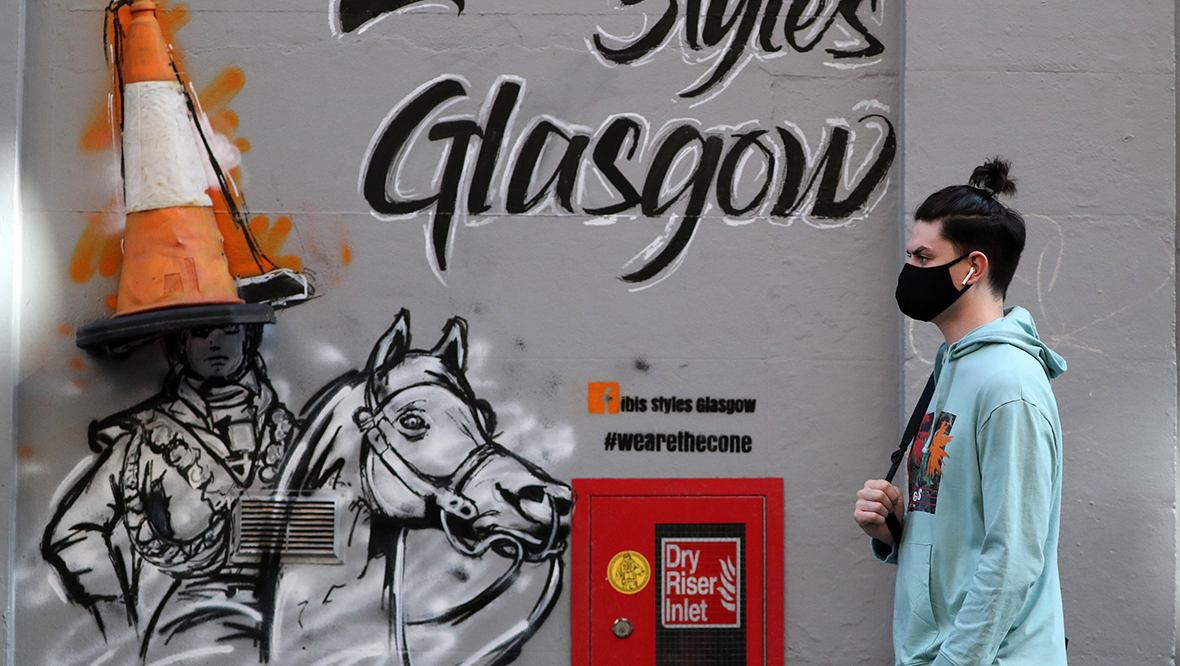Scotland has never been close to eliminating coronavirus at any stage of the pandemic, a scientific adviser to the Scottish Government has said.
Professor Mark Woolhouse contradicted First Minister Nicola Sturgeon’s repeated insistence that Scotland was “close” to eliminating the virus after the first wave last summer.
Giving evidence to Holyrood’s Covid-19 Committee, the chair of infectious disease epidemiology at the University of Edinburgh instead said the actual number of positive cases never fell below 500, according to “very well validated” modelling.
He told MSPs: “Scotland was not close to elimination at any stage during this epidemic.”
Although the number of cases actually reported were low between the first and second waves, he argued it is a “misinterpretation” to suggest Covid-19 was close to elimination because of the sheer number of infected people who did not get tested.
There was a “dramatic increase” in positive cases among younger people who possibly did not have symptoms that were discovered when testing capacity increased, Professor Woolhouse said.
He explained that genome sequencing to identify strains “showed quite clearly that the lineages that were present in the first wave in Scotland were still present in the second wave”.
He concluded: “So we were not close to elimination in Scotland.”
Last June, Sturgeon said Scotland was “not far away” from eliminating coronavirus and she has since repeated the suggestion the country had nearly eradicated the virus before new strains were brought in through overseas and cross-border travel.
Professor Woolhouse also argued the UK’s death rate is so high because governments focused on lockdown rather than protecting those most vulnerable to coronavirus.
Health Protection Scotland analysis he was involved with estimated that between half and three-quarters of all deaths in the first lockdown were because of infections acquired after the March 23 restrictions came into force.
“What that tells me is we didn’t pay nearly enough attention to doing things beyond lockdown to protect the vulnerable and care homes and the wider community,” he said. “We simply didn’t do that enough.
“All we had was shielding, which wasn’t a particularly effective policy according to most people, and a little bit of extra advice for the over-70s.
“We could have put so much more effort into protecting the people who needed protecting.
“We do now recognise this with care homes; we recognise for care homes we didn’t do enough.
“We need to recognise the same thing is true of the vulnerable people in the community; we didn’t do enough to protect them either.
“Lockdown did not save those peoples and save the majority of those people and I think that’s something we don’t have to reflect on very hard.”
In the Covid-19 Committee’s second evidence session, national clinical director Professor Jason Leitch said there is some concern over prevalence rates of the virus in Scotland.
“It does appear that all four UK countries have stalled,” he told the committee.
“Everybody has got to about 100 (cases) per 100,000 (people) and it’s kind of stopped there.
“In the last week, we’ve gone from 104 to 104, so the last week has given us cause for reflection.
“We still think it’s safe to open schools and early learning, but one of the reasons why we’re suggesting you shouldn’t do much more than that is in order for us to monitor that three-week – incubation period and a half, roughly – to get us to see what happens to the prevalence of the virus across that period.”
With Scotland set to return to a levels system of restrictions after lockdown is lifted, Professor Leitch said measures will be assessed every three weeks, as opposed to weekly as was the case last year.
“We want that to be as simple as it can be,” he told MSPs.
“We don’t want to do it every week, because we think that was too often and created more confusion for the public actually than light.”
Follow STV News on WhatsApp
Scan the QR code on your mobile device for all the latest news from around the country


 PA Media
PA Media

























